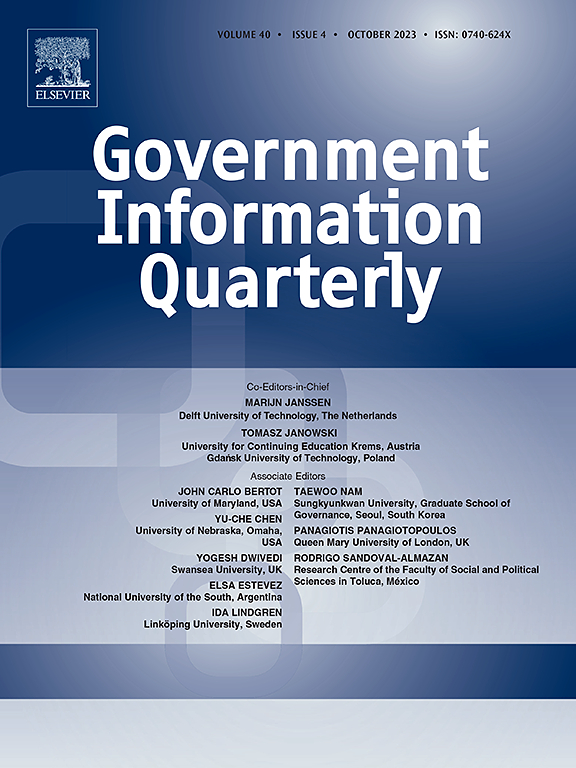解决公共人工智能治理中的价值冲突:一个程序正义框架
IF 10
1区 管理学
Q1 INFORMATION SCIENCE & LIBRARY SCIENCE
引用次数: 0
摘要
本文探讨了解决人工智能公共治理中价值冲突的挑战。虽然现有的人工智能伦理和监管框架强调一系列规范标准,如准确性、透明度、公平性和问责制,但这些价值观中的许多都是紧张的,在某些情况下是不可比较的。我提出了一个程序正义框架,以区分衍生可信度标准与涉及基本民主价值观的冲突。对于前者,我使用诸如支配原则、超估值主义和最大化等分析工具来排除明显较差的选择。对于后者,我认为合理的决策需要程序上的公平审议,其基础是广泛认可的原则,如公开、包容、相关性和吸引力。通过对瑞典公共就业服务局(PES)使用的基于人工智能的决策支持系统的深入分析,我展示了这一框架的适用性,展示了机构决策者如何在效率、可解释性和合法性之间进行复杂的权衡。该框架为公共机构提供了一种结构化的方法来解决人工智能实施中的规范冲突,超越技术优化,走向民主合法的治理。本文章由计算机程序翻译,如有差异,请以英文原文为准。
Resolving value conflicts in public AI governance: A procedural justice framework
This paper addresses the challenge of resolving value conflicts in the public governance of artificial intelligence (AI). While existing AI ethics and regulatory frameworks emphasize a range of normative criteria—such as accuracy, transparency, fairness, and accountability—many of these values are in tension and, in some cases, incommensurable. I propose a procedural justice framework that distinguishes between conflicts among derivative trustworthiness criteria and those involving fundamental democratic values. For the former, I apply analytical tools such as the Dominance Principle, Supervaluationism, and Maximality to eliminate clearly inferior alternatives. For the latter, I argue that justifiable decision-making requires procedurally fair deliberation grounded in widely endorsed principles such as publicity, inclusion, relevance, and appeal. I demonstrate the applicability of this framework through an indepth analysis of an AI-based decision support system used by the Swedish Public Employment Service (PES), showing how institutional decision-makers can navigate complex trade-offs between efficiency, explainability, and legality. The framework provides public institutions with a structured method for addressing normative conflicts in AI implementation, moving beyond technical optimization toward democratically legitimate governance.
求助全文
通过发布文献求助,成功后即可免费获取论文全文。
去求助
来源期刊

Government Information Quarterly
INFORMATION SCIENCE & LIBRARY SCIENCE-
CiteScore
15.70
自引率
16.70%
发文量
106
期刊介绍:
Government Information Quarterly (GIQ) delves into the convergence of policy, information technology, government, and the public. It explores the impact of policies on government information flows, the role of technology in innovative government services, and the dynamic between citizens and governing bodies in the digital age. GIQ serves as a premier journal, disseminating high-quality research and insights that bridge the realms of policy, information technology, government, and public engagement.
 求助内容:
求助内容: 应助结果提醒方式:
应助结果提醒方式:


